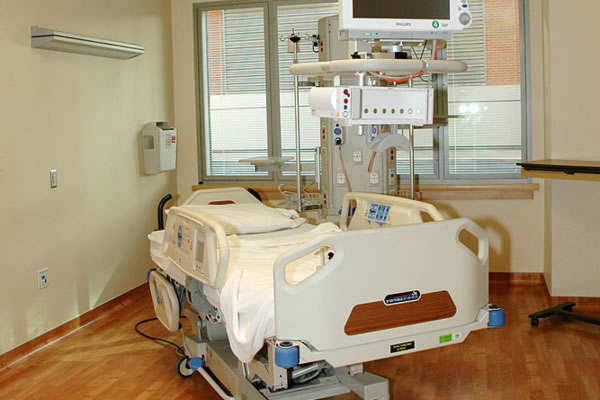One night when my daughter was 3 years old, she became very sick and we rushed her to the emergency room. The first thing the nurse in the ER did was to check her blood pressure. I was shocked to see that my preschooler’s blood pressure was sky high.
At first I thought the high blood pressure was related to her illness, but then I realized that the child was just scared to death. We had taken her out of her bed, her room and her home in the middle of the night and had her in this strange environm ent with unfamiliar sights, sounds, smells and people. Of course her blood pressure was high!
ent with unfamiliar sights, sounds, smells and people. Of course her blood pressure was high!
When people with dementia has to go to the emergency room, their reactions to the event are often very similar to my daughter’s reactions. Even if people with dementia have been to a particular hospital or emergency room numerous times, each time they may experience it as if it were the first.
Fear and confusion
A traumatic injury or illness is stressful and exhausting for mentally healthy people. For patients with dementia, the experience can be entirely overwhelming.
Fear and confusion are feelings that many patients with dementia encounter when they are treated in hospitals. In the case of a traumatic injury or acute illness, the patient does not understand what is happening around him and likely nobody has the time to explain it to him. Dementia patients may become combative and aggressive towards medical staff due to their confusion about the situation.
Advocates are needed
What can caregivers do to help alleviate the confusion and facilitate the needed treatment?
A person with dementia should never go to the hospital or emergency room alone. Dementia patients need advocates in the hospital setting. Advocates need to be the ones to ask and answer questions and to make decisions for the patient.
Caregivers and advocates should inform everyone who interacts with the patient of the dementia diagnosis. One caregiver even suggests hanging a sign in the patient’s room that says something like,
“Hi! My name is _______. I have dementia. If I: Cry, Don’t answer your questions, Speak in gibberish, Repeat words or phrases, Am scared of you, Get out of bed and wander down the hall, Get very restless at night, etc., Please understand that it is part of the disease. I am normally a very pleasant, friendly person, but I have not been myself lately. Thank you for your understanding and support.”
Caregivers and advocates will also need to provide constant comfort and reassurance to the patient. Hold the patient’s hand, speak with a soothing voice, and tell them they are safe. Tell the patient where they are and what is happening. Even though they may not seem to comprehend the words, research shows that patients remain calmer if they are told what to expect.
Anti-anxiety and antipsychotic drugs can be potentially harmful. Patients with dementia are often especially sensitive to the side effects of these medications. These drugs should only be used to calm the patient after all other measures have been tried. Use of such medications may actually result in a longer hospital stay as they may require more time for the patient to “recover” from the side effects.
By improving the quality of treatment for patients with dementia in the hospital setting, patients are more cooperative and ultimately may have shorter stays in hospitals.




 We Can Do Better, South Carolina!
We Can Do Better, South Carolina!
























